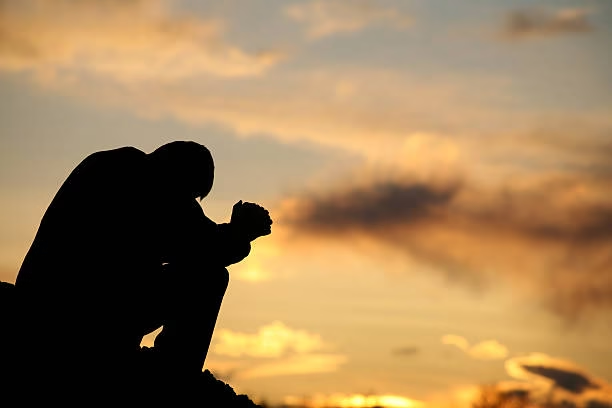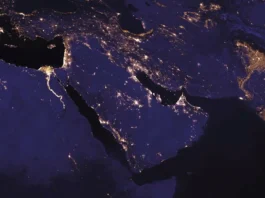Introduction: The Global Spiritual Awakening
We live in an era of unparalleled advancement. Our homes are more comfortable than ever, entertainment is available at the tap of a screen, and artificial intelligence promises to handle our most tedious tasks. Yet amidst all this, something feels deeply broken. Rates of depression and loneliness continue to climb. Suicide is now one of the leading causes of death among young people. Social media connects us, but only superficially leaving us feeling more isolated than ever.
This paradox has birthed a global phenomenon scholars call the New Age of Spirituality: a worldwide movement where millions are beginning to reject the empty promises of materialism and seek something deeper something sacred.

From CEOs quietly meditating in boardrooms to teenagers pulling tarot cards in their bedrooms, spiritual exploration is no longer confined to temples or churches. Google searches for “spiritual awakening” have skyrocketed by 300% in the last decade. Meditation apps have been downloaded over 150 million times. Even atheists once the loudest critics of religion are now saying: “There must be more to life than this.”
But what exactly is driving this shift? And can this modern, often self-made form of spirituality with its blend of ancient rituals, Instagram mantras, and psychological hacks truly satisfy the soul? Or is it simply another illusion?
Part 1: Why Materialism Failed Us
The Broken Promise of Consumerism
For the last century, we’ve been sold a story: Work harder. Buy more. Chase pleasure. That’s the good life. But as societies become more materially affluent, they also grow spiritually bankrupt.

- Depression rates have increased by 40% since 2005 (World Health Organization).
- One in four Americans report having no close friends (Survey Center on American Life).
- Celebrity suicides from Anthony Bourdain to Chester Bennington shatter the illusion that fame, money, and indulgence equal fulfillment.
The COVID-19 pandemic exposed these cracks. When the distractions of nightlife, travel, and workplace busyness disappeared, millions were forced to sit with themselves. And many didn’t like what they found. A question echoed across the globe: If I’m not defined by my job or my social life, then who am I?
The Science of Spiritual Hunger
Neuroscience is catching up to what prophets and sages have preached for millennia: humans are not just physical bodies but spiritual beings.
- MRI scans show that prayer and meditation activate the same brain regions associated with love, joy, and empathy.
- Gratitude studies reveal it reduces inflammation and improves mental health sometimes outperforming antidepressants.
- Loneliness, now officially recognized as a public health crisis, lights up the brain similarly to physical pain.
This isn’t just about happiness. It’s about survival. Just like the body needs food, the soul needs nourishment. And when it starves, it screams for meaning, for connection, for God.
Harverd – When science meets mindfulness
Part 2: The Rise (and Limits) of Modern Spirituality
The Good: A Return to Sacred Practices
Today’s seekers aren’t just reading self-help books they’re digging through ancient traditions in search of truth. Practices once considered fringe are now mainstream:
- Meditation: A $5 billion global industry.
- Ayahuasca retreats: Promising trauma healing through shamanic plant medicine.
- Mindfulness: Taught in Fortune 500 companies and elite schools to combat stress and burnout.
There’s something undeniably beautiful here a yearning to return to the sacred, to silence, to presence.
The Problem: Spiritual Consumerism
But much of this modern spirituality is not a return to God it’s just another form of consumption.
- Instagram gurus market “enlightenment” in slick 30-day courses.
- Crystal shops sell spiritual tools with no sourcing ethics or cultural awareness.
- Manifestation culture tells you the universe is your butler if you think hard enough, it’ll deliver.
It’s spirituality without submission. It promises transformation without sacrifice, connection without commitment. But real spirituality isn’t easy it humbles you. It disciplines you. It transforms not just your mood but your moral compass.
As one critic put it: “You can’t buy awakening with a credit card.”
The Dark Side: When Spirituality Lacks Ethics
Without a moral anchor, even spirituality can become dangerous:
- Narcissism: “Follow your bliss” becomes an excuse to avoid responsibility.
- Cultural appropriation: Sacred practices are stripped of context and sold for profit.
- Escapism: Spirituality becomes a drug used to avoid hard conversations, real injustice, and inner accountability.
In short, it becomes a distraction rather than a path to truth.
Part 3: Islam – The Antidote to Spiritual Chaos
Why Seekers Are Turning to Islam
Amid the confusion and chaos, one path stands out not because it’s trendy, but because it’s timeless: Islam.

Where modern spirituality says “follow your truth,” Islam calls us to submit to The Truth not as a limitation, but as a liberation. While New Age movements promise temporary highs, Islam offers a lifelong structure that aligns heart, mind, and soul.
| Modern Spirituality | Islamic Tradition |
|---|---|
| “Follow your truth” | Submit to Divine Truth (Tawheed) |
| Solo, self-guided journey | Ummah (community of believers) |
| Temporary emotional highs | Discipline through prayer, fasting, etc. |
| Vibes-based morality | Clear halal/haram ethical framework |
Real Stories of Transformation
Sarah, 28 (Ex-Yoga Instructor):
“I loved meditation. It calmed me. But I still felt unanchored. When I saw Muslims praying five times a day not based on mood but obedience it made sense. Real spirituality isn’t about feelings. It’s about consistency and surrender.”
David, 35 (Former Atheist):
“I respected science. But when I read the Quran’s verses on embryology perfectly aligned with what I studied in med school I was stunned. How could this knowledge exist 1400 years ago? That’s when I knew: this wasn’t man-made.”
Aisha, 22 (Ex-Manifestation Coach):
“I built a business around ‘think rich, be rich.’ But when my dad got cancer, affirmations didn’t help. I needed something deeper—something real. Islam taught me to trust in Allah’s Destiny. That gave me peace.”
These are not rare cases. Every year, over 20,000 people in the U.S. alone accept Islam, many after trying every other spiritual option.
Part 4: Proofs from Science & History
The Fitrah: Built to Believe
Modern studies support the Islamic concept of Fitrah the innate human inclination to believe in a Creator.
- Harvard research shows children instinctively believe in a purposeful, intelligent Designer.
- Near-death experiences (NDEs) across cultures consistently involve divine encounters, a sense of accountability, and vivid afterlife visions.
These aren’t coincidences. They’re reminders that belief isn’t indoctrination it’s instinct.
Children are born believers in God, academic claims – The telegraph
Islam’s Timeless Record
In a world drowning in spiritual noise, Islam remains unchanged:
- 1400 years of preserved scripture, memorized by millions word for word.
- A rich tradition of scholarship, ethics, and worship that covers not just belief, but how to live: from eating to sleeping, from marriage to money.
- Despite media bias and global challenges, Islam is the fastest-growing religion in the world not by sword, but by sincerity.
Conclusion: The Choice Ahead
The New Age of Spirituality reveals something essential: people are hungry. But most are snacking on sugar while starving for sustenance. A meditation app can calm your nerves, but it can’t answer your deepest questions: Why am I here? What happens after I die? Who created me, and what does He want from me?
Islam answers these questions not with vague energy, but with revelation. Not with temporary calm, but with permanent clarity. It doesn’t just offer a path. It offers The Straight Path.
Two roads lie ahead:
- Road 1: Keep chasing temporary highs retreats, rituals, and the next spiritual trend.
- Road 2: Return to your Creator, your fitrah, and your purpose. Through Islam.
“So which of the favors of your Lord will you deny?” – Qur’an, 55:13
The spiritual revolution is already here. The only question is: Will you join it?




